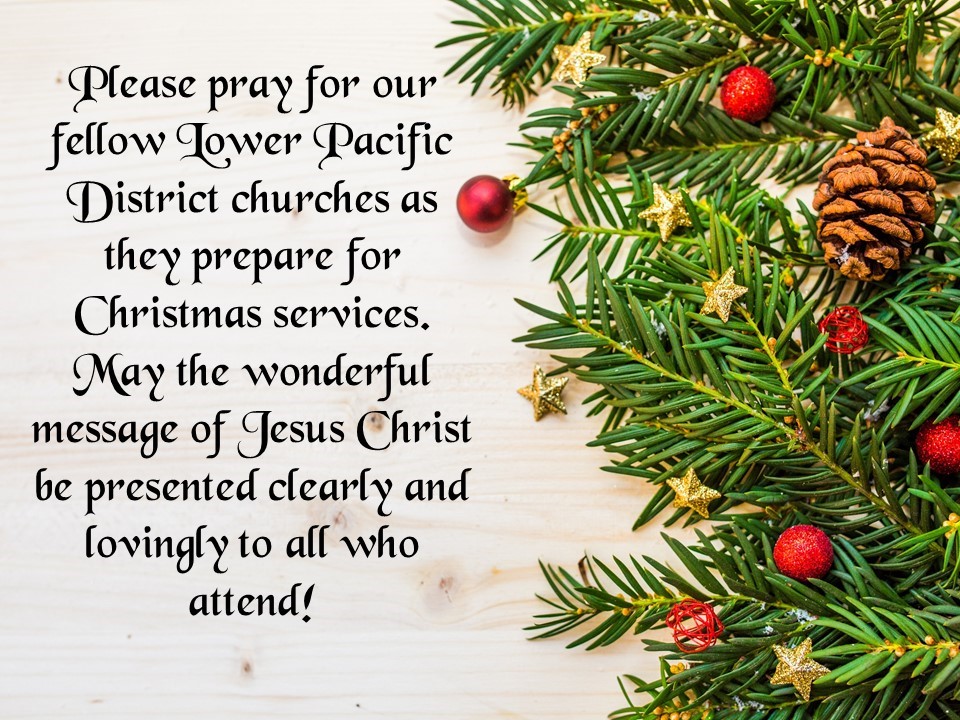
Thanks to Anna (Ben) Crumback at Sointula Community Church for producing the Church of the Week!
***
MERRY CHRISTMAS!
***
“Isn’t there anyone who knows what Christmas is all about?” So asks Charlie Brown, as he and his friends made preparations for their Christmas concert.
This week, I attended the “Primary Christmas Concert” at the elementary school of two of our granddaughters. It was fun to be there as a proud grandpa!
The “Christmas” concert was really something of a global celebration of all religions. The class of one of our granddaughters sang, “Happy Diwali.”
Diwali, as you may know, is one of the major religious festivals in Hinduism, and lasts for five days, beginning on the 13th day of the dark half of the lunar month Ashvina through the second day of the light half of Karttika. The name is derived from the Sanskrit term “dipavali,” meaning “row of lights,” which are lit on the new-moon night to invite the presence of Lakshmi, the goddess of wealth.
The grade three class of our second granddaughter, sang, “The Day of Eid,” an Islamic song that celebrates the end of the of Ramadan, the holy month of fasting that Muslims believe that they are commanded to observe by Allah and as mentioned in the Quaran. The day of Eid falls on the first day of the month of Shawwal, right after Ramadan. to continue their fast until the last day of Ramadan.
Class after class sang songs celebrating Hannukah, also known as the Festival of Lights, a Jewish festival that commemorates the rededication of the second temple in Jerusalem at the time of the Maccabean revolt, Kwanzaa, a modern day celebration held in the United States and in other nations of the African diaspora in the Americas and lasts from December 26-January 1 to honor African heritage in African-American culture, Jabulani, from the Zulu word, meaning “to celebrate,” and Gung Hay Fat Choy, meaning “Congratulations and be prosperous,” to recognize “Chinese New Year,” which falls on February 5, 2019, as we enter the “year of the pig.”
While all of this was rather interesting, what was lacking was any reference to, in the words of Charlie Brown, “…what Christmas is all about.”
Finally, a brief reference was made to Christmas, as the kindergarten and grade one class sang, “C’est Noel,” (it is a French Immersion school), and with this, brief reference was made to Christians celebrating the birth of Christ.
I was glad for this mention of Christ, as fleeting as it was, but was really struck by the secularization and multicultural nature of the concert.
While I celebrate multiculturalism, I do not celebrate the avoidance of the life and eternity-changing Good News from Luke 2, “Do not be afraid. I bring you good news that will cause great joy for all the people Today in the town of David a Savior has been born to you; he is the Messiah, the Lord.”
We do live in a strange culture. On one hand, we insist that teachers support the myth of Santa Claus, so as to not upset young students, even though we know that they will grow to learn that is is all fiction. We will include all faiths in our “Christmas” celebration, but dare not offend people with the very real and very inclusive good news of great joy.
Not to be discouraged – we have the great and free opportunity to share the news from our hearts. Christ Jesus came to save. Christ rose from the dead, and because He lives, we too will live. Christ is coming, and this will bring both accountability and judgement. People need Good News!
In 1965, Charles Schulz insisted on including the meaning of Christmas in his famous, “Charlie Brown’s Christmas.” He did so simply by having Charlie Brown raise the question, “Isn’t there anyone who knows what Christmas is all about?” Linus responds by simply reading from Luke 2. Here is a link – as you watch it, please note when Linus drops his “security blanket.”
https://www.youtube.com/watch?v=eff0cqYefYY
Do not be afraid! Celebrate and tell the Good News!
***
Please pray for:
***
Upcoming Events:
LPD Annual Conference:
March 1,2 at Vancouver Chinese EFC.
“Discipleship that Transforms“
The expectation of the Great Commission is to make disciples, yet it seems like we are struggling to see transformed lives in our churches today. If we are going to be the gospel-sharing people that Christ desires, how do we accomplish the goal of becoming a Great Commission church? In exploring how to create a church culture where disciples are transformed; we are confident you will be equipped to meet the challenge of helping people hear the voice of Jesus and follow in simple obedience.
Please plan to join us for this annual gathering, and to attend with your leadership team!
Please mark your calendars and watch for details early in the New Year!